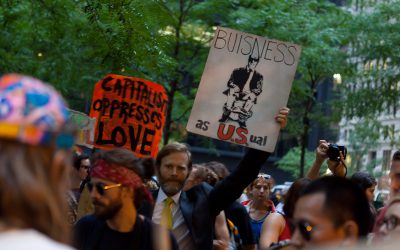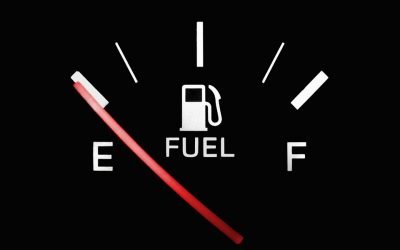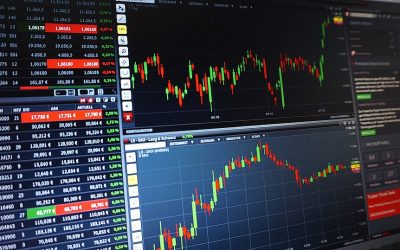Economics proves the existence of a harmony of the rational self-interests of all participants in the economic system—a harmony which permeates the institutions of private ownership of the means of production, economic inequality, and economic competition.
George Reisman
The Intellectual Assault on Economic Activity and Capitalism, Part 1 of 2
Capitalism is denounced as “an anarchy of production,” a chaos ruled by “exploiters,” “robber barons,” and “profiteers,” who “coldly,” “calculatingly,” “heartlessly,” and “greedily” consume the efforts and destroy the lives of the broad masses of average, innocent people.
Freedom of Immigration for Rights Respecting Individuals
We need to make a beginning toward the establishment of freedom of immigration for all rights-respecting individuals.
The Outlook for the Future of Capitalism (Part 10 of 10)
Let the advocates of capitalism proceed in the knowledge not only that socialism is dead, but also that what the world still needs to learn is why capitalism deserves to live.
A General Campaign at the Local Level for Laissez-Faire Capitalism (Part 9 of 10)
What would be required to restore New York to its former prosperity and greatness would be the combination of the elimination of public welfare, the abolition of rent controls, and the privatization of the city’s transportation system.
The Separation of State from Religion, Science, and Education (Part 8 of 10)
The system of public education could be abolished over the course of a generation, in a way that need not impose financial hardship on the parents of any child alive at the time of the abolition’s commencement.
A Pro-Capitalist Foreign Policy (Part 7 of 10)
In the present-day world, a procapitalist foreign policy is indistinguishable from a pro-American foreign policy.
Establishment of Gold as Money (Part 6 of 10)
The establishment of gold as money is essential to the achievement of a capitalist society.
Abolition of Income and Inheritance Taxes Under Capitalism (Part 5 of 10)
A possible way to start on the elimination of the income/inheritance tax right now would be to fight for the immediate adoption of a universal exemption of at least 51 percent of everyone’s income from federal, state, and local income taxation under all circumstances.
Capitalism and the Abolition of the Welfare State (Part 4 of 10)
The savings of individuals would steadily replace taxes as the source of provision for old age.
The Freedom of Production and Trade Under Capitalism (Part 3 of 10)
An appropriate vehicle for the establishment of the freedom of production and trade, whether all at once or gradually, would be the establishment of one last regulatory-type agency: the Deregulation Agency.
Privatization of Property: Importance of Fighting on Basis of Principles (Part 2 of 10)
The privatization of property is the most fundamental aspect of a procapitalist political program
Toward the Establishment of Laissez-Faire Capitalism (Part 1 of 10)
If a laissez-faire capitalist society is to be achieved, a political movement pursuing a long-range program will be necessary.
Why Nazism Was Socialism and Why Socialism Is Totalitarian
Nazi Germany was a socialist state, not a capitalist one and socialism, understood as an economic system based on government ownership of the means of production, positively requires a totalitarian dictatorship.
Prices and Costs of Production in a Free-Market
In a free market, the prices of products tend to be governed by their costs of production.
Capitalism vs. Racism: Black Consumers & Ending Segregation
Under laissez-faire capitalism, racial segregation would disappear, even though it would be legally permissible on private property. It would disappear because it is fundamentally incompatible with the requirements of profit-making and because it is irrational.
Capitalism vs. Racism: Equal Pay for Equal Work
Profit-seeking employers qua profit-seeking employers are simply unconcerned with race. Their principle is: of two equally good workers, hire the one who is available for less money; of two workers available for the same money, hire the one who is the better worker. Race is simply irrelevant.
Wage Rates Under Capitalism
In a free market, within the limit of his abilities, each person chooses that job which he believes offers him the best combination of money and nonmonetary considerations. In so doing, he simultaneously acts for his own maximum well-being and for that of the consumers who buy the ultimate products his labor helps to produce.
1970s Oil Shortages Not Caused By Oil Companies
The oil shortage was “manufactured” by the government, through price controls, not by the oil companies and their perfectly natural and praiseworthy desire to earn profits.
Commodity Speculation in a Free-Market
Speculative activity, of course, is not limited to anticipating just future scarcities. Rather, it seeks in general to balance consumption and production over time by accumulating stocks of commodities and regulating their rate of consumption.
Like this content? Subscribe to support our work — it's free.
Read by students, professors, and citizens, Capitalism Magazine provides over 9,000 free to read articles and essays from pro-reason, individual rights perspective. 100% independent.
No spam. Unsubscribe anytime.




















